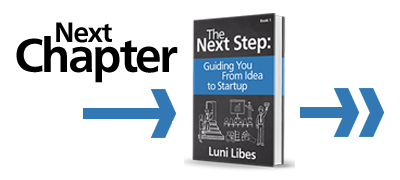Your company can do well and do good at the same time.
The world is full of big, important problems. Most companies focus on two small problems: saving customers time or saving customers money. Entertainment companies focus on “killing” time. Meanwhile, few companies focus on improving the environment, lowering energy usage, minimizing waste, improving communities, expanding economic opportunities, or other shared problems.
QUESTION 12:
Am I solving an important problem?
In the first twenty years of my entrepreneurship career, my advice was to always work on the largest startup ideas possible. Since starting a startup consumes a huge amount of effort, no matter its scale, and given that most startups fail, no matter their scale, it seemed logical to spend that effort on the biggest potential ideas with the largest potential monetary payoffs.
However, as I shifted to work with “conscious” entrepreneurs, my thoughts have changed. My advice now is to work on the most impactful ideas, solving the biggest problems possible. Impactful startups take just as much effort as non-impactful startups, and they also mostly fail. However, as long as you are expending all the time and energy to create a startup, you might as well make a difference in the process.
Bird Watch—[An important problem?]: Deforestation and other human activities, along with climate change and other natural phenomenon, are having an impact on wildlife and their habitat. Bird Watch can measure the impact on wildlife and help us better understand the short-term and long-term implications of these changes.
Concrete Battery—[An important problem?]: Electricity consumption continues to rise year after year, continuing a century-long trend of increasing carbon emissions. Expansion of wind and solar electricity generation will help reduce the consumption of fossil fuels and eventually lower global carbon emissions. Concrete Battery’s technology can help speed up the adoption of wind, solar, and other alternative energy sources.
Close to Home—[An important problem]: Housing is a basic human need. On most days, there are a host of options and a well-organized system for providing housing. However, after a natural disaster, local governments must often step in to provide shelters for survivors. Close to Home is a for-profit company that focuses on providing housing during the months of rebuilding that comes after a big disaster.
Ensibuuko—[An important problem]: The cycle of poverty is caused by many factors, one of which is the lack of access to financial services by the poor.
Your company does not have to be involved in environmental measurement or “clean-tech” or be providing a fundamental human need to be helping solve important problems. For example, Starbucks provides an “affordable” luxury item, but while doing so, it promotes fair trade practices in its coffee bean procurement and provides generous benefits to its part-time work force.
Externalities
Choosing to solve an important problem is good, but not if the solution causes new problems. Every action you take with your company will have both planned and unintended consequences. Try to foresee as many of these as you can.
QUESTION 13:
Will my solution create more problems than it solves?
For example, many food companies turned to palm oil to replace the trans fats and other unhealthy oils from their products. Palm oil grows on trees, in low-income tropical countries, and thus seemed like a perfect substitute. However, increased demand for palm oil has led to deforestation, the loss of habitat for endangered species, and the elimination of forests that were supporting indigenous populations. In the end, many companies that switched to palm oil created much worse problems than the one they were solving.
An older example is the automobile. A big problem in the 1880s and 1890s was the tons of horse manure falling daily into city streets from the horse-drawn carts and cabs. When first brought to market, the “horseless carriage” was seen as a much cleaner, far more sanitary solution. Fast forward 100 years, and the unforeseen consequences of the automobile include life-threatening levels of smog, public transit replaced by traffic jams, and global warming.
Sometimes, simple adjustments can drastically reduce any negative impacts or greatly improve the benefits to your customers. For example, Starbucks’s invention and use of the recycled cardboard sleeve keeps coffee warm, prevents the customer’s hands from burning, and does so with minimal materials. It may seem like that solution has caused a new problem, having to produce and dispose/recycle all those sleeves; however, before the sleeves were introduced, customers would often use a second cup to solve the problem. The sleeves thus use less material and so are a more efficient, lower-cost solution.
Good Business
Think through every step of your business, from idea and product to distribution and disposal. Think through the environment you create for your employees. This is your opportunity to create a company from scratch, and with that, you get to decide how to do all of this “right.”
Beyond Starbucks, take a look at Patagonia, Ben & Jerry’s, Trader Joe’s, Costco, and Netflix as model companies. While these companies don’t directly solve the world’s important problems, they do go out of their way to run their businesses in a conscientious manner, far above the norm.
For more information and ideas on how your company can be like these, visit B Labs and look at their B Corporation certification. www.bcorporation.net.











